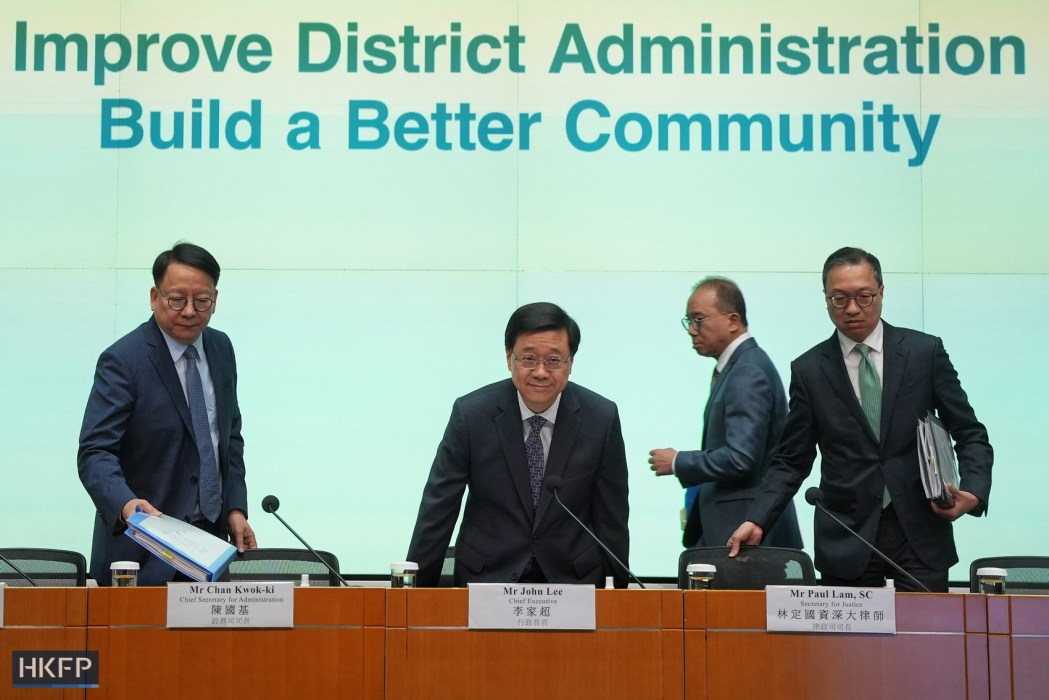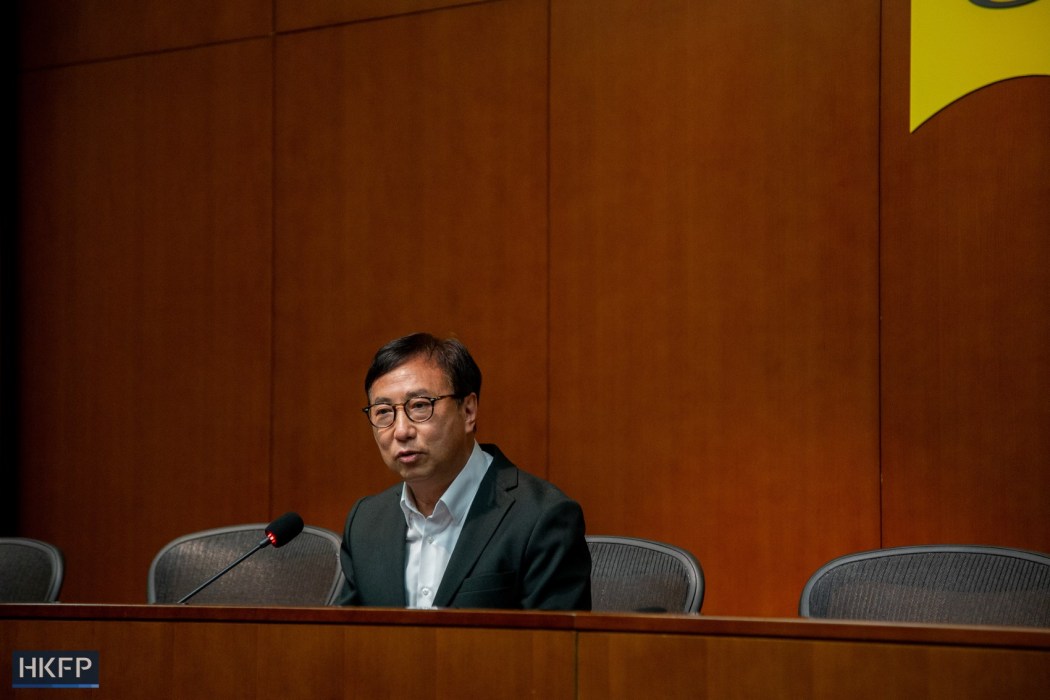Hong Kong lawmakers and those hoping to have candidates run in the upcoming “patriots-only” District Council election have criticised authorities’ refusal to disclose the contact details of committee members responsible for nominating candidates.

Under the recently overhauled electoral system, to be eligible to run for one of 88 directly-elected seats on the local-level advisory bodies – down from 452 in the 2019 election – candidates must receive at least three nominations from government-appointed committees: the Area Committees, District Fight Crime Committees, and District Fire Safety Committees.
Democratic Party chair Lo Kin-hei, who in September revealed that eight party members had been endorsed to run in the December 10 race, said that he had reached out to the Home Affairs Department (HAD) for the contact details of committee members to begin seeking their nominations. However, according to Ming Pao, the HAD said it could only forward the request to the committees.
Citing “the privacy of personal data,” the Electoral Affairs Commission (EAC) said in a statement last Thursday that it was not authorised to make such information available to the general public.

Another pro-democracy party, the Hong Kong Association for Democracy and People’s Livelihood (ADPL), had also raised concerns over difficulties surrounding seeking nominations.
“The democratic camp has less advantage than pro-establishment figures in terms of securing nominations from committee members,” Kwok Wai-shing, general director of the ADPL, said in Cantonese in September on CableTV.
“According to member lists of the three committees, many come from pro-establishment parties… it’s hard for us to reach out.”

The HAD website shows the emails of committees and names of their members, but does not reveal personal contact details.
‘Self-contradicting’
Responding to Ming Pao, the HAD said it had requested members of the three committees to provide their contact information at the beginning of the year to allow the public to access it for “council-related matters.”
However, the contact information could not be disclosed to those hoping to run in the District Council race because by the time members had agreed to provide their contacts, the new electoral system had not been approved, HAD said.

Tik Chi-yuen, the one self-proclaimed non-establishment lawmaker in the legislature, told Ming Pao that the authorities were “being inconsistent and self-contradictory.” While they cited data privacy as a reason for not disclosing members’ contact details, they had also requested the committees to disclose members’ personal data, he said.
Executive Councillor Ronny Tong said in early October that the government should provide at least one way for prospective candidates to contact members of the three committees. He added that the situation could potentially hinder people from running and even result in a legal challenge being launched against the government.

In an editorial last Wednesday, Ming Pao said the EAC had a responsibility to disclose committee members’ contacts, to offer election candidates a clear path to securing nominations, and to run the overhauled election in a fair and transparent way.
It also said that privacy of personal data should not be used as an excuse, as elections were linked to public affairs and should be exempted from the Personal Data (Privacy) Ordinance.
Plans to overhaul the District Council elections were unveiled in May 2023 to ensure only “patriots” were elected, following a pro-democracy landslide at the last polls in 2019.
The number of seats chosen democratically by the public were slashed from 452 to 88 – reducing the power of public votes to a fifth. The rest are to be chosen by the city’s leader and government-appointed committees.
Constituency boundaries were redrawn, the opposition were shut out, voting hours were slashed by an hour, and each local council is to be chaired by a government official, similar to colonial-era arrangements. All candidates undergo national security vetting to ensure patriotism.
Support HKFP | Policies & Ethics | Error/typo? | Contact Us | Newsletter | Transparency & Annual Report | Apps
Help safeguard press freedom & keep HKFP free for all readers by supporting our team

LATEST FROM HKFP
HKFP has an impartial stance, transparent funding, and balanced coverage guided by an Ethics Code and Corrections Policy.
Support press freedom & help us surpass 1,000 monthly Patrons: 100% independent, governed by an ethics code & not-for-profit.










